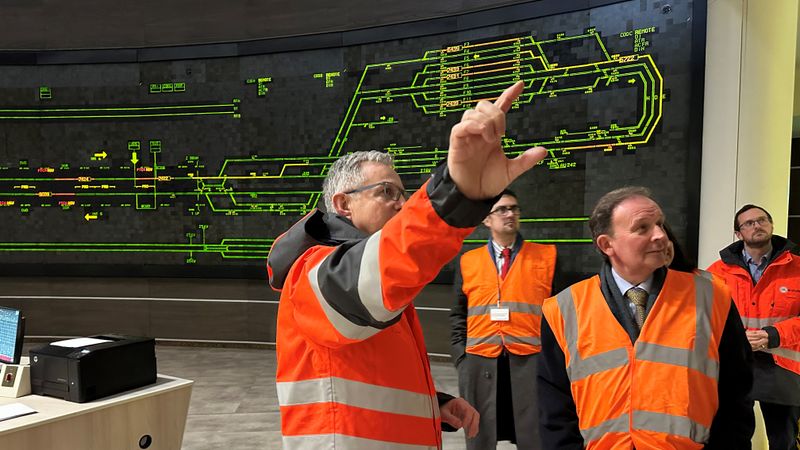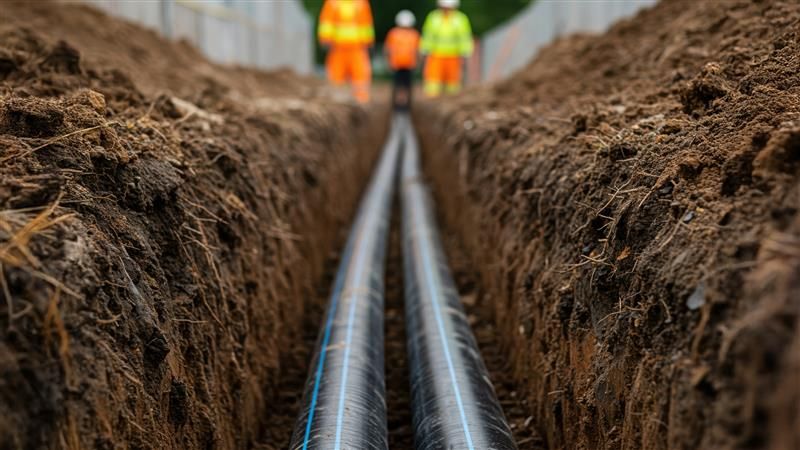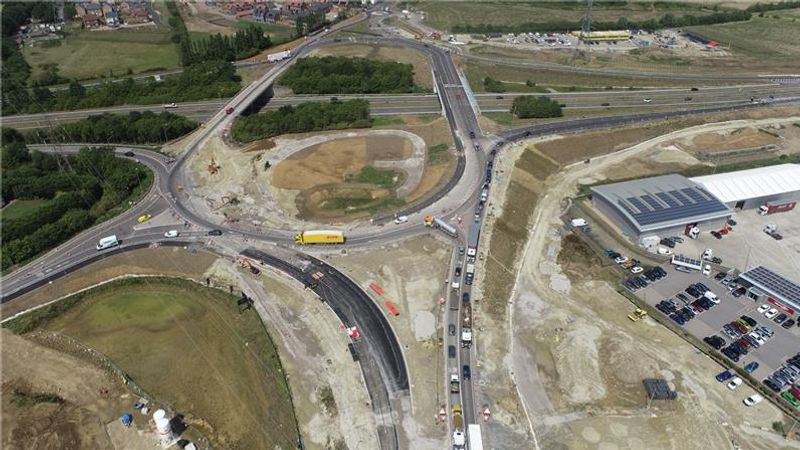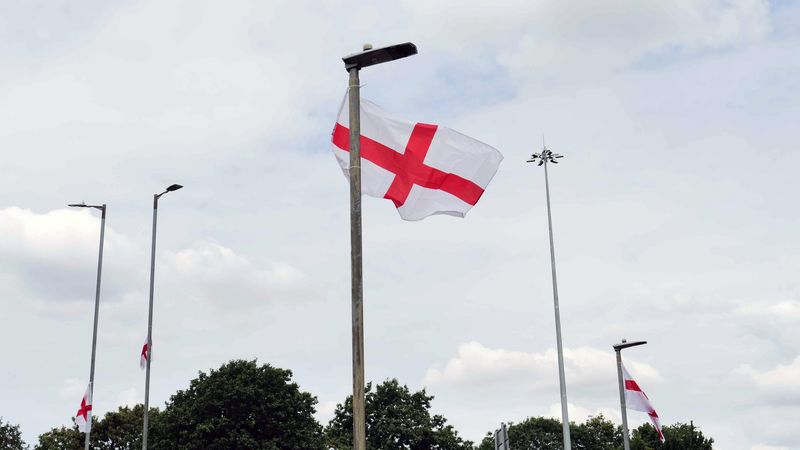Roger Gough told an EU Scrutiny Committee last month he is enormously concerned that the implementation of EU Entry Exit System (EES) checks at the borders in October will result in serious delays for those travelling through the county and have a knock-on effect on Kent communities along the route to Dover.
In the summer of 2022, delays on the approaches to both the Port of Dover and Eurotunnel caused long delays, with tourists stuck in queues for over 15 hours. Data analysis and modelling carried out by partners in the Kent Resilience Forum (KRF) currently indicates that the results of introducing EES checks on tourist traffic crossing the Short Straits are expected to be much worse and to occur on a regular basis.
The new EES checks will require travellers from countries outside the EU to register biometrics such as facial and fingerprint scans at their first point of entry.

“The Government needs to be urgently discussing with their French and EU counterparts how the implementation of EES checks is going to work.”
On a visit to Eurotunnel, Roger Gough, accompanied by KCC Cabinet Member for Highways and Transport, Neil Baker, and Cabinet Member for Economic Development, Derek Murphy, was shown how the cross-channel operator is preparing the site to ensure the introduction of the new checks, which could mean it takes up to six minutes longer to process each car boarding the trains, have as little impact as possible on people travelling through Kent to Europe.
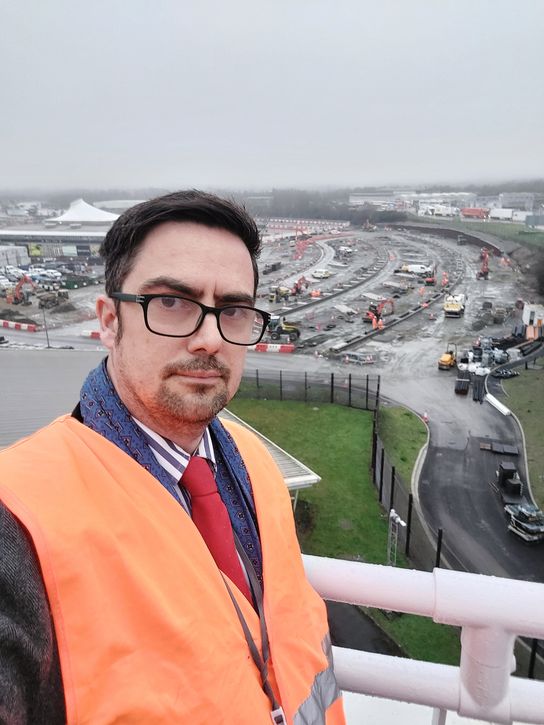
Neil Baker, KCC Cabinet Member for Highways and Transport, looks over the work at the Eurotunnel site
Eurotunnel is investing €80m to prepare their terminals for the introduction of new border controls. The new technology and infrastructure will ensure that customers can enrol for EES rapidly and efficiently before continuing their journey. Eurotunnel’s up-front investments will help keep Kent traffic moving once the new border controls are introduced.
Roger Gough said: “It has been reassuring to see the planning and preparation at Eurotunnel, and I am encouraged by the new infrastructure being put in place here ahead of October this year.
“However, the Government needs to be urgently discussing with their French and EU counterparts how the implementation of EES checks is going to work and must recognise that the Short Straits is the most important entry to Europe for the whole of the UK.
“As we know from experience, if there are serious delays caused by these extra border checks it has a terrible effect on local communities on the route to the Port of Dover and Eurotunnel, especially in the town of Dover.
“Increased facilities for holding EU bound freight are essential, so that the strategic road network through Kent does not become a permanent lorry park and result in concerns for both tourist and freight driver welfare. The Government should be urgently exploring all technological capabilities and legislative possibilities to enable remote registration, and consequently to reduce the prospect of delays at the border points.”
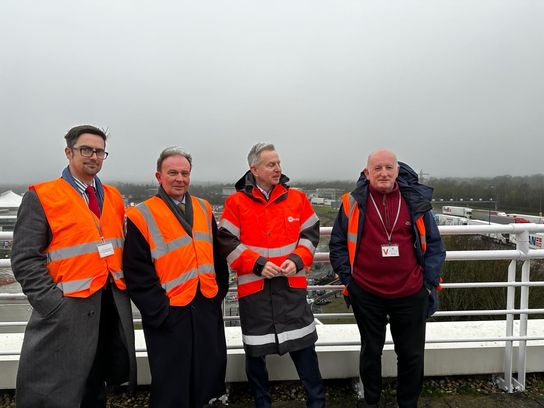
KCC Cabinet Member for Highways and Transport Neil Baker, KCC Leader Roger Gough, Eurotunnel spokesman John Keefe and KCC Cabinet Member for Economic Development Derek Murphy at the Eurotunnel site
Eurotunnel spokesman, John Keefe, said: “Eurotunnel is delighted to host Roger Gough and KCC Cabinet Members. We have shown them how our €80m investment in technology and infrastructure will smooth our customers’ journeys and help keep Kent traffic moving when the new border controls come into force.”
Roger Gough will continue to put pressure on the Government to work with operators, infrastructure owners, EU member state governments, the European Commission and its agencies to explore all technological capabilities and legislative possibilities to enable remote registration to reduce the prospect of delays at the border points, and to mitigate against disruption and delays at the Port of Dover, Eurotunnel and on roads through Kent.
Further information
To watch Roger Gough appearing before the EU Scrutiny Committee, accompanied by Deirdre Wells of Visit Kent, and Andrew Osborne of Ashford BC, visit: Parliamentlive.tv - European Scrutiny Committee
